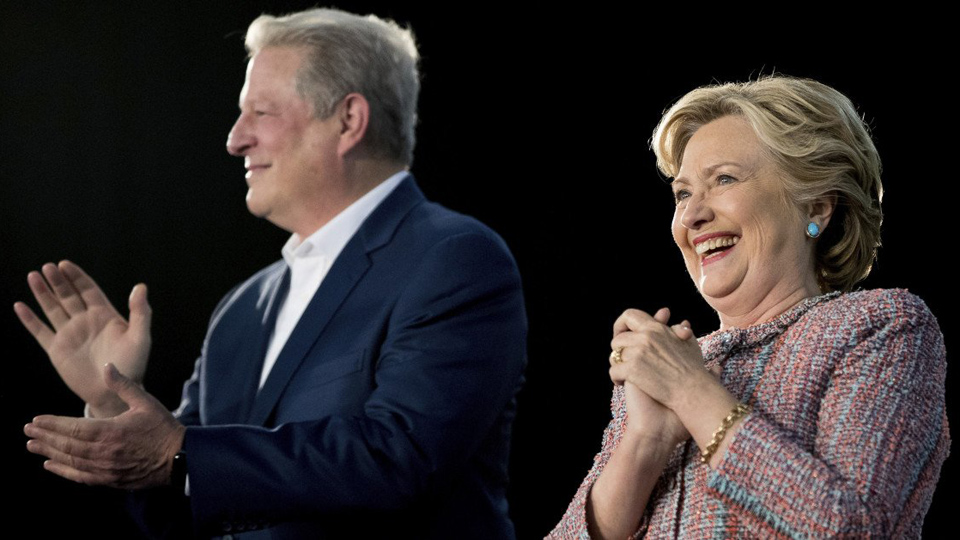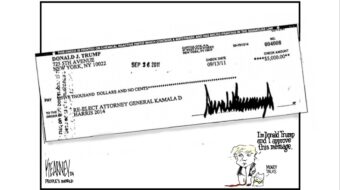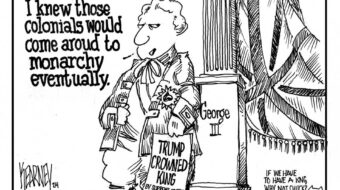
Much has been made of Donald Trump’s electoral inroads into what had previously been seen as Democratic territory, particularly in Pennsylvania, Michigan, and Wisconsin. All three states had voted Democratic in the Electoral College in the last six presidential elections. That is, until this year, when the Republicans carried all three.
Why these states switched parties is for analysis elsewhere. What needs to be emphasized, but is mentioned only in passing, is that Hillary Clinton won the popular vote. With incomplete returns several days after the election, she currently leads the President-Elect by over 700,000 votes.
For the second time in sixteen years, the United States will have held an election in which the candidate who received the most popular votes was not elected. One need only to refer back to the 2000 election when Democrat Al Gore received 250,000 more votes than did George W. Bush, yet lost the election.
Three other times in our history – in 1824, 1876, and 1888 – the same thing happened. In 1824, when no candidate received a majority of electoral votes, John Quincy Adams was elected by the House of Representatives, even though Andrew Jackson came out on top in the popular vote. In 1876, in a disputed election, Republican Rutherford B. Hayes defeated Democrat Samuel Tilden even though Tilden won more popular votes; and in 1888 President Grover Cleveland was defeated for re-election by Benjamin Harrison, even though Cleveland received more popular votes. Harrison won the Electoral College.
The question is, how democratic is an electoral system where it is possible for the candidate who emerges with the most votes loses the election? Nowhere else on this planet where elections are held is it conceivable that the person who compiles the most votes loses. Yet, in a race for what is considered to be the most important job on Earth, such a result is possible.
One may ask, why is there an Electoral College, and why hasn’t it been abolished?
The reason for the Electoral College comes from the Constitutional Convention in 1787. The dominant slaveowner-financial-commercial interests feared the idea of having the people directly elect the president. George Mason, a delegate from Virginia thought “it [is] impossible that the people can have the requisite capacity to judge of the respective pretensions of the Candidates,” while Elbridge Gerry, a delegate from Massachusetts, believed “a popular election in this case is radically vicious. The ignorance of the people would put it in the power of some one set of men dispersed through the Union & acting in Concert to delude them into any appointment.”
Democracy, as envisioned by the Founding Fathers, was quite narrow. Only white men who owned property had the right to vote. Over the last 230 years, people fought to widen the meaning of democracy. Poor white men, women, African-Americans, indigenous people, immigrants, and youth have won significant victories. Yet, the anachronism of the Electoral College remains.
If it were to be abolished the nature of presidential elections would change dramatically. Whereas today the votes of those who live in “swing” states, and heavily-populated states are more important (just look at where the candidates spent most of the campaign), every vote would then be equal. The votes of those who live in states such as North and South Dakota, Maine, Delaware, or Idaho would be as important as those in Ohio, Florida, California, or North Carolina. Candidates would have to follow a “fifty-state” strategy. And most importantly, the candidate who received the most votes would become president.
The way to abolish the Electoral College is through a Constitutional amendment, which requires a two-thirds vote in both the House and the Senate, then ratification by three-fourths of the states. This will not be easy, but like all struggles, it must be undertaken so that justice and democracy defeat the forces of darkness that could destroy those values dearest to the people.












Comments